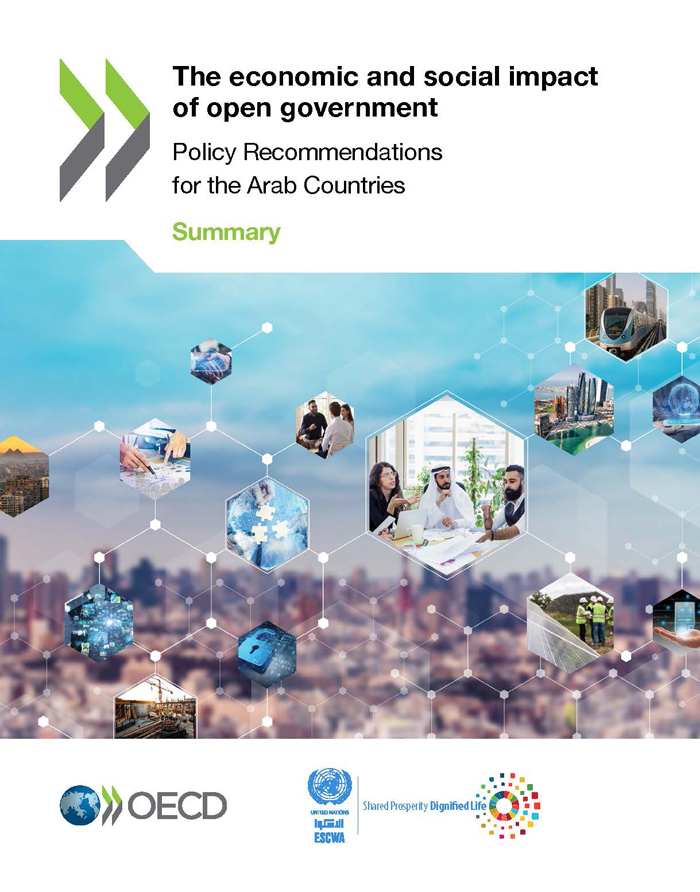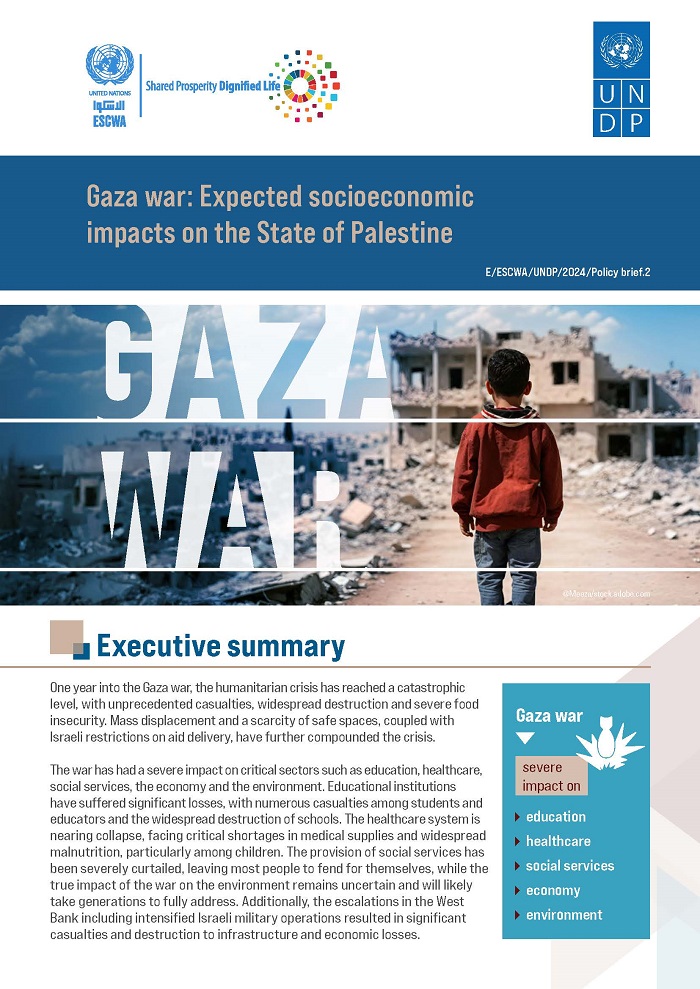
ESCWA Publication: OECD/2022/1/SUMMARY
Country: Arab region, Hashemite Kingdom of Jordan, Lebanese Republic, Kingdom of Morocco, Sultanate of Oman, State of Palestine, State of Qatar, Kingdom of Saudi Arabia, Republic of Sudan, Republic of Tunisia, United Arab Emirates, Republic of Yemen
Publication Type: Reports & studies
Cluster: Statistics, Information Society and Technology, Governance and Conflict Prevention
Focus Area: Governance & enabling environment, Technology & innovation
Initiatives: Arab Open and Innovative Government, ENACT project
SDGs: Agenda 2030
Keywords: Arab countries, Developing countries, Accountability, Public administration, Access to information, Laws and regulations, Government information, Economic aspects, Social aspects, Governance, Democracy, Covid-19, Sustainable development, Political aspects
The Economic and Social Impact of Open Government: Policy Recommendations for the Arab Countries: Summary
July 2022
Governments are increasingly struggling to address the complex economic and social challenges due in part to structural governance flaws, which have been exacerbated by the COVID-19 pandemic. While public trust was already declining before the health crisis, the current context may further erode people’s trust in their governments. This is true also for the Arab region, where many people voice complaints related to social injustice, political disenfranchisement, economic inequalities, and corruption. Many countries rely on open government to respond to some of these challenges, better engage citizens in Government's decisions and spur broader socio-economic change. Based on the experiences of many developed and developing countries, open government can help Arab countries increase public trust, reduce the risks of instability, and implement the Sustainable Development Goals (SDGs).
The report is the result of collaboration between the OECD and ESCWA and builds on the OECD recommendation on open government and the ESCWA framework on “Fostering Open Government in the Arab region.” It also contributes to the work of the MENA-OECD governance programme and the Arab open government project of ESCWA. Using selected good practices and lessons learned from the OECD and Arab countries, the report demonstrates the economic and social impact of open government. The study shows how the principles of transparency, accountability, and citizen participation can be translated into better social services and contribute to achieving inclusiveness and social and economic development, thus realizing the 2030 Development Agenda and its SDGs.
Related content
Governance & enabling environment
, Technology & innovation
,
Governments are increasingly struggling to address the complex economic and social challenges due in part to structural governance flaws, which have been exacerbated by the COVID-19 pandemic. While public trust was already declining before the health crisis, the current context may further erode people’s trust in their governments. This is true also for the Arab region, where many people voice complaints related to social injustice, political disenfranchisement, economic inequalities, and corruption. Many countries rely on open government to respond to some of these challenges, better engage citizens in Government's decisions and spur broader socio-economic change. Based on the experiences of many developed and developing countries, open government can help Arab countries increase public trust, reduce the risks of instability, and implement the Sustainable Development Goals (SDGs).
The report is the result of collaboration between the OECD and ESCWA and builds on the OECD recommendation on open government and the ESCWA framework on “Fostering Open Government in the Arab region.” It also contributes to the work of the MENA-OECD governance programme and the Arab open government project of ESCWA. Using selected good practices and lessons learned from the OECD and Arab countries, the report demonstrates the economic and social impact of open government. The study shows how the principles of transparency, accountability, and citizen participation can be translated into better social services and contribute to achieving inclusiveness and social and economic development, thus realizing the 2030 Development Agenda and its SDGs.


